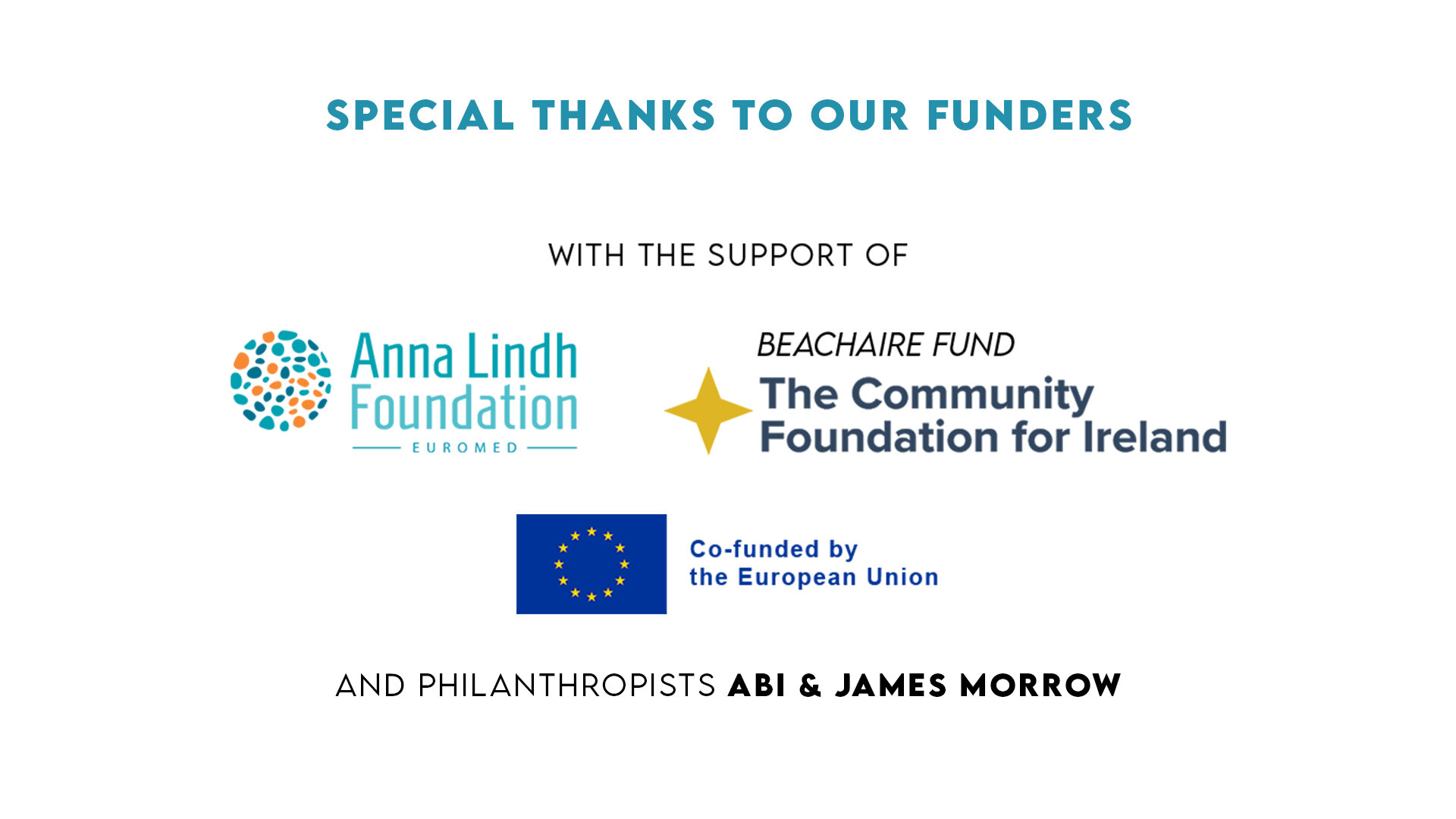Portrait by Aya Saleh
Parallel Story #3
Unknown Woman and Fatme Chhayber
? to Palestine?
Palestine to Canada
This parallel story was put forward by the Jerusalem Center for Women for Movement
Fatme has been paired with an ‘unknown woman’ because due to the Israeli occupation, it is unsafe for women in Palestine to share their stories.
Fatme’s family were forced to emigrate from Acre to Lebanon after Al-Nakba (The 1948 Palestinian exodus). Due to the war in Lebanon, her family moved from South Lebanon to Anjar, where she was born in 1952. Her family had to leave again, and this time they moved to Burj Ash-Shamali Camp in Lebanon, as her father found a job there and rented two rooms. Again due to war, they were forced to move to Tal Al-Zaatar camp. And for the third time they were forced to move to Burj Al-Barajneh camp in Beirut as a result of the Israeli-Lebanese war. This way Fatme spent her childhood in three different camps.
Later, when Fatme got married, her husband moved to Qatar, while she stayed in Labanon with her family and children. In 1982 Israel invaded Lebanon and began a slaughter that resulted in the Sabra and Shatila massacre, in which 17 members of Fatme’s family were killed.
In 1990, Fatme moved to Qatar and reunited with her husband. In that exact year Iraq invaded Kuwait, and all the Palestinians in Qatar were expelled to Canada. Nowadays Fatme lives in Canada, she has a Canadian passport. She visits Palestine from time to time, but can’t stay in Palestine for more than three months.
Why can’t Fatme return to Palestine for more than 3 months?
‘Israel prevents Palestinian refugees from returning because it claims they are a security threat. However, seeing as Israel is a settler colony built on stolen land, it did not have the population numbers to sustain itself. It could only be established by creating new demographic realities on the ground, these new realities necessitated that approximately 80% of the Palestinians in what is today considered Israel be ethnically cleansed to maintain a demographically stable Zionist ethnocracy.’
Fatme, a mother of four, was deprived of her homeland.
DISCOVER MORE ABOUT THE MOVEMENT PROJECT
The content of this publication is the sole responsibility of Herstory and the Jerusalem Center for Women and does not necessarily reflect the position of the Anna Lindh Foundation or the European Union. www.annalindhfoundation.org



